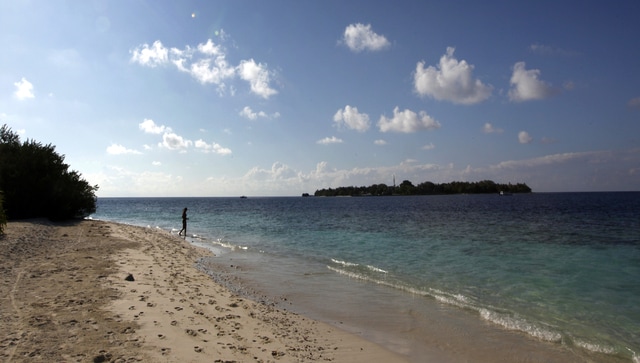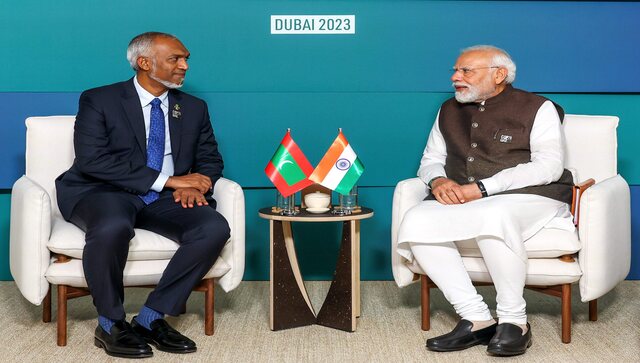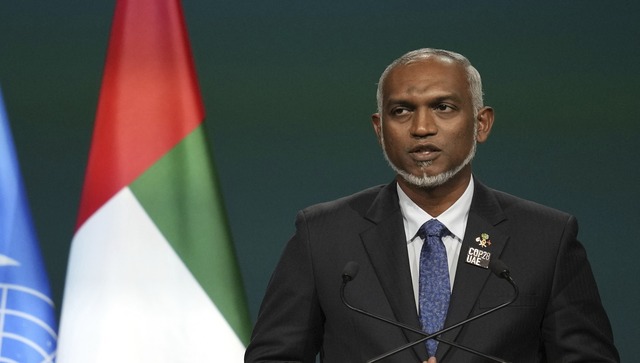The relations between India and the Maldives have dealt a blow. Many Indians are furious after some Maldivian ministers made racist and derogatory remarks against India following Prime Minister Narendra Modi’s visit to Lakshadweep, promoting its beautiful islands. While the Maldives government suspended the three deputy ministers – Malsha Shareef, Mariyam Shiuna and Abdulla Mahzoom Majid – on Sunday (7 January) after a massive backlash on social media over their remarks, the damage was done. India summoned the high commissioner of Maldives today (8 January) to raise strong concern over the remarks against PM Modi. As Indian social media witnesses call to “boycott” the Maldives and switch to Indian destinations for holidays amid the diplomatic row, the strain in ties between the two nations has come to the spotlight. Let’s take a closer look. India-Maldives ties India has stood with the Maldives through thick and thin. The country, which was the first to recognise the Maldives after its independence in 1965, is seen as a “net security provider” in the island nation, according to a Ministry of External Affairs (MEA) document. India is one of the largest sources of
tourism
for the archipelago. Indians were among the largest group of tourists who visited the Maldives last year. But the relationship between the two countries goes much beyond that. From preventing the 1988 coup attempt in Male to assisting the island nation during the 2004 Indian Ocean tsunami, India has always sprung to the aid of the Maldives in its tough times. New Delhi has walked the talk of being the “first responder” to the archipelago by assisting the island nation to combat measles in 2020 and even during the COVID-19 pandemic. Speaking to India Today last July, the then Maldives foreign minister Abdulla Shahid had said, “In 1988, there was a mercenary attack which undermined our sovereignty. India responded. There was a tsunami in 2004 and at that time, President (Maumoon Abdul) Gayoom was in power. India responded then. In 2015, there was a water crisis under President (Abdulla) Yameen’s tenure. Within six hours, India airlifted water to the residents of Male”. “During the COVID-19 pandemic, President (Ibrahim) Solih was in power. Then also, we saw the same high degree of generosity from Delhi. That is why we have this time-tested special relationship with India for the last few decades,” he said at the time. [caption id=“attachment_13590412” align=“alignnone” width=“640”] Tourists enjoy the beach at a resort island at the Male Atoll 8 December 2009. Reuters File Photo[/caption] India is a strategic ally of the Maldives, which is located in a key position in the middle of the Indian Ocean. The defence and security cooperation between the two nations is also strong, with India offering the largest number of training opportunities for the Maldivian National Defence Force (MNDF), according to the MEA document. New Delhi has never shied away from extending financial assistance to the island nation dotted with luxury resorts. In November 2022, New Delhi provided funds of over USD 100 million to ease the financial challenges faced by the Maldives. As per a report by the World Bank in 2022, the Maldives needs to increase revenues and undertake several expenditure and debt reforms to avert an economic crisis in the future. India has also facilitated in the execution of several development projects in the Maldives. The downturn in India-Maldives ties The ties between India and the Maldives have taken a downturn since President Mohamed Muizzu came to power last November in the island nation. After his victory in the Maldives’ presidential elections in September, Muizzu’s one of the first statements was that they will “send back foreign soldiers in the Maldives”. While he did not name any country, the remark was widely considered to be aimed at India, which reportedly has a small contingent of 75 military personnel in the Maldives. These Indian troops are involved in operating and maintaining a Dornier aircraft and two helicopters gifted by New Delhi to the MNDF for emergency medical evacuations and disaster relief missions. The two Dhruv Advanced Light Helicopters (ALF) were only for humanitarian purposes, but backers of the ‘India Out’ campaign claim that India was trying to establish a military presence in the Maldives. Muizzu’s People’s National Congress-Progressive Party of Maldives (PNC-PPM) coalition pledged to end the country’s “India first” policy during the election campaigning. The Maldives president’s alleged leaning towards China is also being discussed in regards to his actions concerning India. Last December, President Muizzu said that India had agreed to withdraw its soldiers from the Maldives. Sources in New Delhi told Indian Express that the issue came up briefly in Dubai when Muizzu met PM Modi on the sidelines of the COP28 summit. As per reports last month, the Maldives has decided to pull out of a
hydrography cooperation agreement
with India after its expiry on 7 June 2024. The pact was signed on 8 June 2019 when PM Modi visited Male at the invitation of then-President Solih. Muizzu’s China visit President Muizzu is visiting China from 8 to 12 January. The trip is being viewed as a snub to India. Unlike past Maldivian presidents who came to India first after assuming office, Muizzu chose Turkey as his first foreign destination. “President Muizzu seems disinclined to continue engaging India. His actions seem directed at creating distance between Male and Delhi. He also seems keen on a close friendship with China, which should be concerning to India,” Abhijit Singh, head of the Maritime Policy Initiative at the Observer Research Foundation think tank in New Delhi, told Reuters. “The President’s trip to Beijing, before a visit to New Delhi, is a signal - as clear as any - that India is low on priority for this regime.” [caption id=“attachment_13590422” align=“alignnone” width=“640”]
Tourists enjoy the beach at a resort island at the Male Atoll 8 December 2009. Reuters File Photo[/caption] India is a strategic ally of the Maldives, which is located in a key position in the middle of the Indian Ocean. The defence and security cooperation between the two nations is also strong, with India offering the largest number of training opportunities for the Maldivian National Defence Force (MNDF), according to the MEA document. New Delhi has never shied away from extending financial assistance to the island nation dotted with luxury resorts. In November 2022, New Delhi provided funds of over USD 100 million to ease the financial challenges faced by the Maldives. As per a report by the World Bank in 2022, the Maldives needs to increase revenues and undertake several expenditure and debt reforms to avert an economic crisis in the future. India has also facilitated in the execution of several development projects in the Maldives. The downturn in India-Maldives ties The ties between India and the Maldives have taken a downturn since President Mohamed Muizzu came to power last November in the island nation. After his victory in the Maldives’ presidential elections in September, Muizzu’s one of the first statements was that they will “send back foreign soldiers in the Maldives”. While he did not name any country, the remark was widely considered to be aimed at India, which reportedly has a small contingent of 75 military personnel in the Maldives. These Indian troops are involved in operating and maintaining a Dornier aircraft and two helicopters gifted by New Delhi to the MNDF for emergency medical evacuations and disaster relief missions. The two Dhruv Advanced Light Helicopters (ALF) were only for humanitarian purposes, but backers of the ‘India Out’ campaign claim that India was trying to establish a military presence in the Maldives. Muizzu’s People’s National Congress-Progressive Party of Maldives (PNC-PPM) coalition pledged to end the country’s “India first” policy during the election campaigning. The Maldives president’s alleged leaning towards China is also being discussed in regards to his actions concerning India. Last December, President Muizzu said that India had agreed to withdraw its soldiers from the Maldives. Sources in New Delhi told Indian Express that the issue came up briefly in Dubai when Muizzu met PM Modi on the sidelines of the COP28 summit. As per reports last month, the Maldives has decided to pull out of a
hydrography cooperation agreement
with India after its expiry on 7 June 2024. The pact was signed on 8 June 2019 when PM Modi visited Male at the invitation of then-President Solih. Muizzu’s China visit President Muizzu is visiting China from 8 to 12 January. The trip is being viewed as a snub to India. Unlike past Maldivian presidents who came to India first after assuming office, Muizzu chose Turkey as his first foreign destination. “President Muizzu seems disinclined to continue engaging India. His actions seem directed at creating distance between Male and Delhi. He also seems keen on a close friendship with China, which should be concerning to India,” Abhijit Singh, head of the Maritime Policy Initiative at the Observer Research Foundation think tank in New Delhi, told Reuters. “The President’s trip to Beijing, before a visit to New Delhi, is a signal - as clear as any - that India is low on priority for this regime.” [caption id=“attachment_13590422” align=“alignnone” width=“640”]
PM Narendra Modi meets Maldives President Mohamed Muizzu at COP28 in Dubai on 1 December. PTI File Photo[/caption] The Maldives is deep in China’s debt, which is its largest external creditor. As per the latest International Monetary Fund (IMF) data, the Maldives owes China about $1.3 billion. Muizzu’s mentor, former president Abdulla Yameen who is currently in jail, had borrowed heavily from China for construction projects. During his rule between 2013-2018, the ties between India and the Maldives plunged to a particular low. Although New Delhi and Beijing are competing for influence in the Indian Ocean region, the Muizzu government is reportedly tilting towards China. With the deeply embedded ties between India and the Maldives, it is not just tourism that might see a fall in the island nation if tensions continue. Would Muizzu’s pro-China stance upend its relations with India? It remains to be seen. With inputs from agencies
India-Maldives row: How President Mohamed Muizzu’s politics may hurt the island nation beyond tourism
FP Explainers
• January 8, 2024, 18:29:22 IST
India and the Maldives have traditionally enjoyed close ties. However, tensions have arisen since President Mohamed Muizzu came to power last November. Now, derogatory remarks against PM Narendra Modi by some Maldives’ politicians have further threatened the relations
Advertisement
)
End of Article